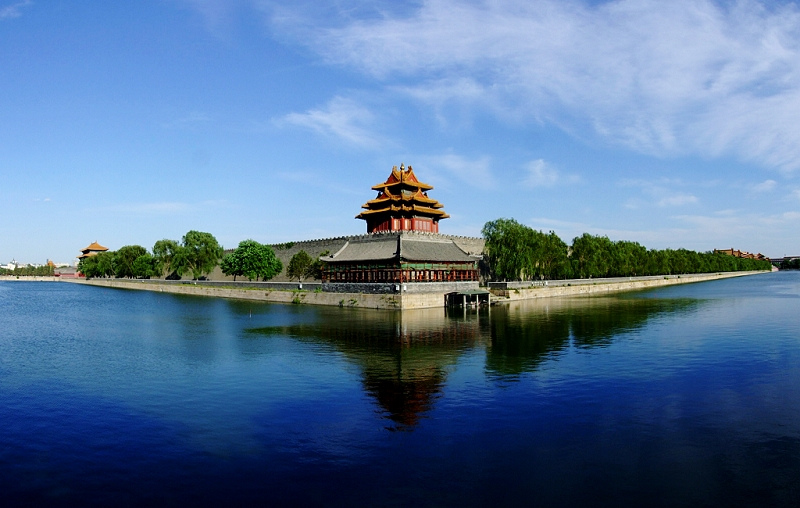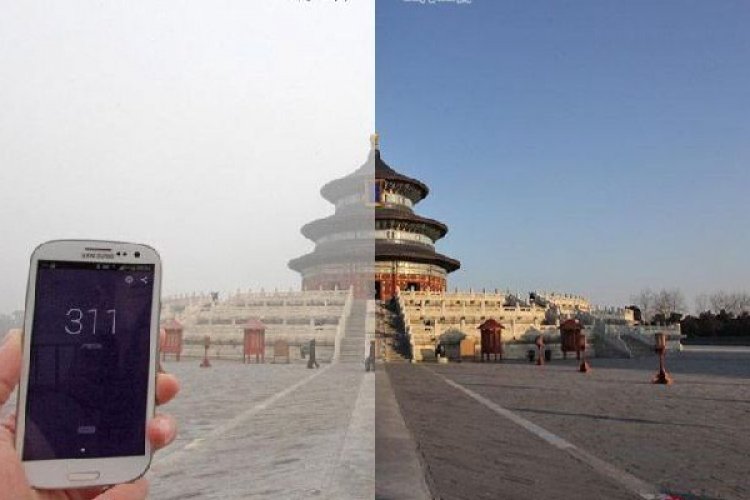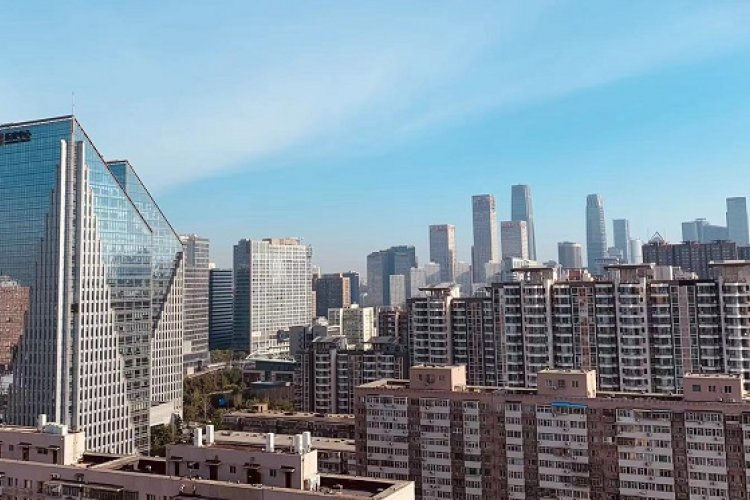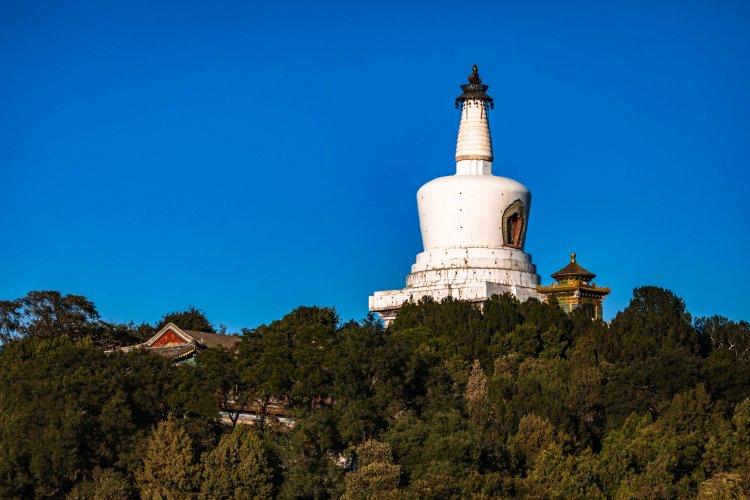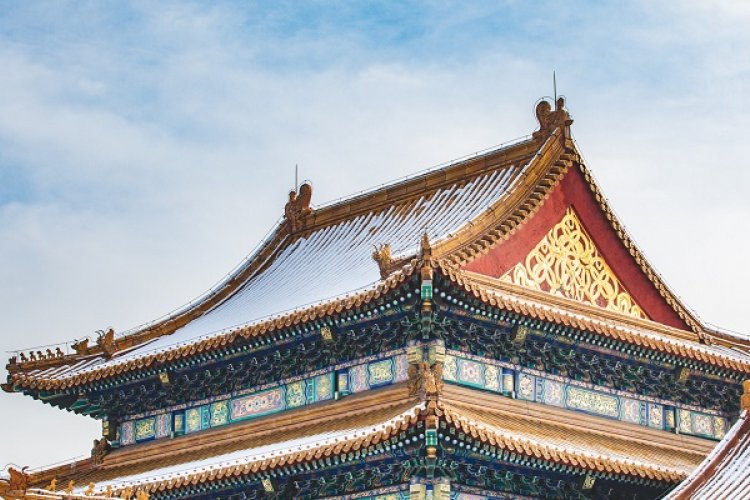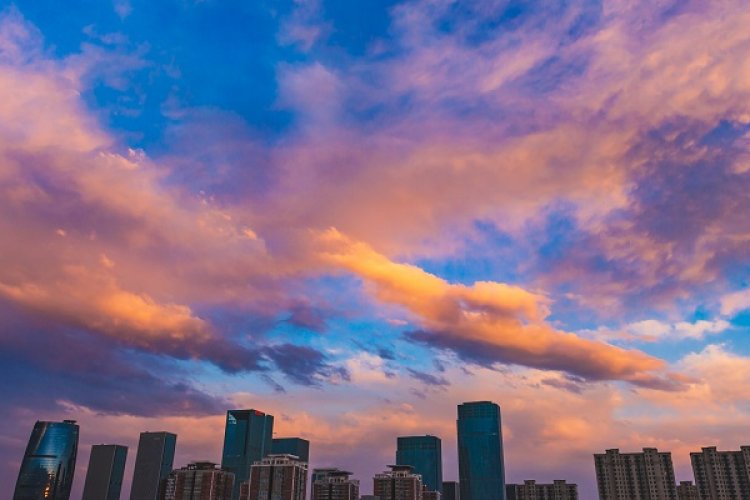It's Not Your Imagination: Beijing's Air Has Been Remarkably Better So Far this Year!
No, you're not imagining things: Beijing's air has indeed been remarkably better so far this year.
On Thursday, Beijing's Environmental Protection Bureau reported the figures for the first four months of 2015, and things are looking up – way up.
Compared with the same four-month period last year, Beijing's PM 2.5 has dropped 19 percent. PM 10 has dropped 12 percent. Nitrogen dioxide has dropped 14 percent. And sulfur dioxide has dropped an amazing 43 percent.
Through April 30, we've had 57 days marked by clean air, compared to 49 days at this time one year ago.
Of course, that's 57 out of 120 days, which does still mean more than half the days have been polluted (52.5 percent to be exact). But the intensity of the smog on those bad days has been measurably lighter: the bureau reports that it's been 42 percent lighter than 2014.
Maybe there's a long way to go before we can claim to be living in paradise, but even little leaps forward should be celebrated. Most of us remember Beijing's Airpocalypse; could we be on the edge of a big change that will require us to coin a new phrase – perhaps the Airenaissance?
Fang Li, the vice administrator of Beijing Environmental Protection Bureau, attributed the cleaner air to three factors: increased emission controls; the closing of more coal-burning power plants and factories in areas in and around the capital; and favorable weather patterns.
"We have scrapped nearly 500,000 old vehicles over the past year and upgraded 6,500 tons-per-hour of coal burning boilers. It's the biggest move in the history [of the city's pollution control efforts]," Li was quoted by CRI as saying.
Zhang Wangcai, the deputy director of Beijing's department of energy, was quoted by Australia's ABC as saying that Beijing is quickly moving away from dependence on coal for electricity generation.
"If we're talking about Beijing, by [the end of] next year all our local power plants will be using clean energy," he told ABC.
In March, Beijing announced a new RMB 48 billion plan which aims to cut PM 2.5 density by 20 percent by 2017. But if we keep up the pace set in the first four months of the year, we'll achieve this goal a full two years early. This would represent remarkable progress over the full year of 2014, when Beijing managed to reduce PM 2.5 by only 4 percent, while PM 10 actually shot up.
The improved air may also help Beijing's chances of winning the bid to host the Olympics in 2022, which is to be decided on July 31. At Thursday's press conference, the bureau took pains to point out that Zhangjiakou, where downhill ski events are to be held, had the most successful air quality control progress amongst all 70 cities that are monitored north of the Yangtze River.
It's not often we find ourselves in the position of bragging about Beijing's clean air, and so this great leap is reason enough celebrate. With that in mind, head on over to peruse our comprehensive list of alfresco dining and drinking spots around the city.
Photo: fengniao
Related stories :
Comments
New comments are displayed first.Comments
![]() admin
Submitted by Guest on Mon, 06/08/2015 - 12:32 Permalink
admin
Submitted by Guest on Mon, 06/08/2015 - 12:32 Permalink
Re: It's Not Your Imagination: Beijing's Air Has Been...
![]() rstcyrmd
Submitted by Guest on Mon, 05/25/2015 - 10:07 Permalink
rstcyrmd
Submitted by Guest on Mon, 05/25/2015 - 10:07 Permalink
Re: It's Not Your Imagination: Beijing's Air *HAS* Been...
That's indeed great news, and the data definitely confirms what we've all noticed here. I'm actually starting to hope a little bit that this may be permanent improvement.
![]() ReneeWine
Submitted by Guest on Sun, 05/24/2015 - 11:51 Permalink
ReneeWine
Submitted by Guest on Sun, 05/24/2015 - 11:51 Permalink
Re: It's Not Your Imagination: Beijing's Air *HAS* Been...
Good news. Cheers.
Validate your mobile phone number to post comments.

